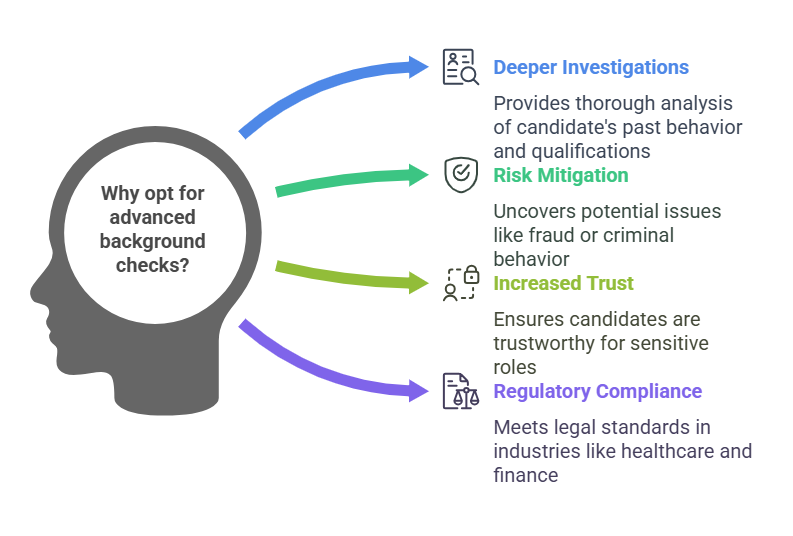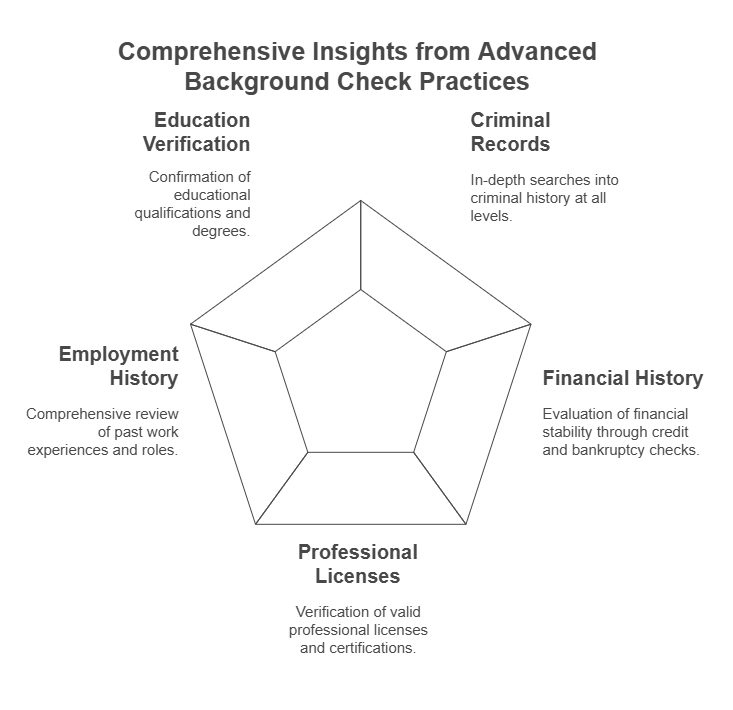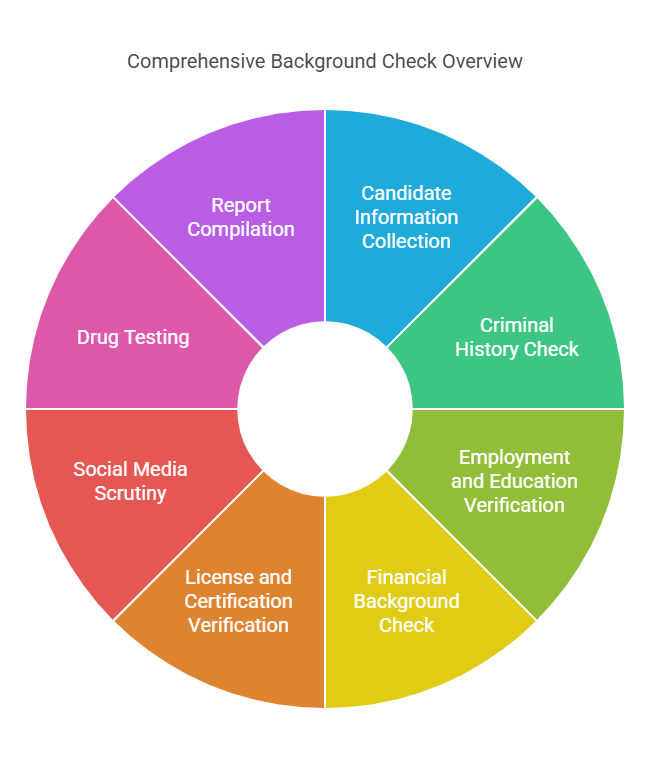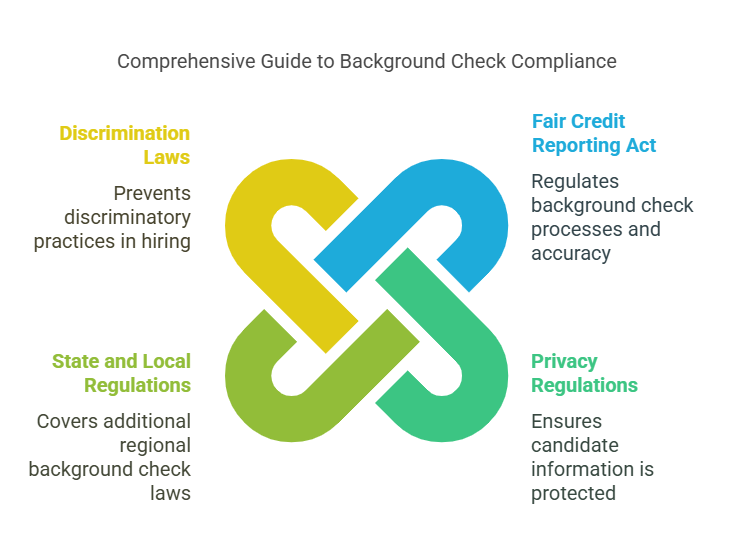Essential Tips for Advanced Background Checks

Introduction and Understanding Advanced Background Checks
An advanced background check refers to a comprehensive screening process that goes beyond the basic criminal history check. It involves a deeper investigation into an individual’s background, often including multiple data sources to assess various aspects of their history, qualifications, and character. This more in-depth search is designed to provide employers or organizations with a detailed overview of a candidate’s past to make informed decisions about hiring, security clearances, and other high-stakes matters.
Unlike a standard background check, which typically includes criminal records and employment verification, advanced background checks may also include information about a person’s financial history, education, professional licenses, social media activity, and more. These checks are especially valuable for positions where candidates may have access to sensitive information, financial assets, or vulnerable populations.
Why Do Employers Opt for Advanced Background Checks?

Employers or organizations often opt for advanced background checks for several key reasons:
- Deeper Investigations: Advanced checks go beyond surface-level criminal history to provide a more thorough analysis of a candidate’s past behavior, skills, and qualifications.
- Risk Mitigation: These checks help mitigate hiring risks by uncovering potential issues like fraudulent activity, past criminal behavior, or discrepancies in the applicant’s qualifications.
- Increased Trust and Security: For roles involving access to sensitive data, finances, or vulnerable individuals, employers need to ensure that the candidates are trustworthy and meet the highest standards of safety and integrity.
- Regulatory Compliance: Some industries, such as healthcare, finance, and education, require more extensive background checks to meet legal and regulatory standards.
Types of Information Covered in Advanced Background Checks

Advanced background checks cover a wide range of information to ensure employers get a full picture of the candidate’s past. Here are some key areas typically included in advanced background checks:
- Criminal Records: In-depth searches into local, state, and federal criminal records, including arrests, convictions, and pending charges.
- Financial History: Credit checks or bankruptcy searches to evaluate financial stability, especially for positions that involve managing company funds or sensitive financial information.
- Professional Licenses and Certifications: Verification of professional licenses or certifications required for the position, ensuring they are valid and free from any disciplinary actions.
- Employment History: A comprehensive review of the candidate’s work history to confirm employment dates, job titles, and responsibilities, including any gaps or discrepancies.
- Social Media Activity: Analyzing public profiles on platforms like LinkedIn, Facebook, and Twitter to assess whether there are any red flags, unprofessional conduct, or behavior that could affect the company’s reputation.
- Education Verification: Confirming the candidate’s educational qualifications and the authenticity of degrees or certifications listed on their resume.
Industries That Commonly Use Advanced Background Checks
Certain industries are more likely to rely on advanced background checks due to the nature of the roles and the potential risks involved. These industries include:
- Healthcare: Healthcare employers often require advanced checks to ensure the safety of patients, especially in roles involving direct patient care, where a criminal history or abuse record could be a major concern.
- Finance: In the finance industry, advanced background checks are critical for verifying financial histories and checking for any signs of fraud, theft, or poor financial responsibility, which can jeopardize the organization’s security.
- Security and Law Enforcement: Professionals working in law enforcement or security need extensive background checks to ensure that they have no history of misconduct, as they are trusted with maintaining public safety.
- Education: Schools and universities require advanced background checks for teachers, administrators, and staff to safeguard students from potential harm.
- Technology: Tech companies conducting advanced background checks ensure that employees can be trusted with sensitive data and intellectual property.
Step-by-Step Process of Conducting an Advanced Background Check

The process for conducting an advanced background check involves several key steps, which may vary depending on the type of information being investigated. Here’s a general breakdown of the process:
- Collect Candidate Information: The candidate must provide personal information such as full name, address, date of birth, social security number, and consent to run the background check.
- Initiate Criminal History Check: The first step typically involves checking criminal records, which includes searches of local, state, and national databases to uncover any potential felonies, misdemeanors, or pending charges.
- Verify Employment History and Education: The background check provider will verify the applicant’s work history and education, reaching out to previous employers and educational institutions to confirm claims made on the resume.
- Financial Background Check: A credit check may be performed, especially for candidates in finance-related roles, to evaluate the individual’s financial behavior. This check can reveal bankruptcies, outstanding debts, and other financial issues.
- Professional License and Certification Verification: If the role requires a specific professional license (e.g., a medical license for healthcare workers), the provider will verify the validity of the credentials and check for any disciplinary action taken against the individual.
- Social Media Scrutiny: In many cases, a background check provider will also review the candidate’s public social media profiles to look for any unprofessional or inappropriate behavior that could impact the company’s reputation.
- Drug Testing and Other Additional Checks: Depending on the position, the background check may also include drug screening, driving record checks, or checks against sex offender registries.
- Compiling the Report: After all checks are completed, the information is compiled into a comprehensive background check report that can be reviewed by the employer to make an informed decision about the candidate.
Benefits of Advanced Background Checks
Advanced background checks offer a number of advantages, especially for employers who need to mitigate risks associated with hiring. Here are the key benefits:
- Mitigate Hiring Risks: By thoroughly vetting a candidate’s past, employers can avoid hiring individuals with a history of fraud, violence, or unethical behavior.
- Enhance Workplace Safety: Advanced checks help ensure that employees do not pose a threat to the safety and well-being of others, which is especially crucial in high-risk environments like healthcare and law enforcement.
- Ensure Regulatory Compliance: Many industries require strict compliance with regulations, and advanced background checks help employers ensure they meet those requirements. For example, healthcare organizations must comply with laws that mandate thorough background checks for certain positions.
- Improve Decision-Making: With comprehensive and accurate information about a candidate, employers can make more informed hiring decisions, which reduces turnover and enhances the overall quality of hires.
- Promote Integrity and Trust: Conducting advanced background checks helps foster trust among employees and customers by ensuring that individuals are hired based on their qualifications and character.
Exact Background Checks: A Trusted Provider for Advanced Screening
At Exact Background Checks, we specialize in conducting thorough and reliable advanced background checks tailored to meet the unique needs of various industries. Whether you’re hiring for a sensitive position in healthcare, finance, security, or any other sector, our team provides comprehensive background screening services to ensure the safety and integrity of your workplace.
Legal Considerations for Advanced Background Checks

When conducting advanced background checks, employers must adhere to several legal considerations to ensure that they are in compliance with both state and federal laws. Some important factors include:
- Fair Credit Reporting Act (FCRA):
- The FCRA regulates how background checks are conducted and ensures that the information obtained is accurate, relevant, and used properly. Employers must get written consent from candidates before initiating background checks and provide candidates with the opportunity to dispute incorrect information.
- Privacy Regulations:
- Employers must protect the privacy of candidates during the background check process. The results of background checks should only be shared with authorized individuals within the company.
- State and Local Regulations:
- Some states or local jurisdictions have additional regulations regarding background checks. For example, some states have “ban the box” laws that restrict when and how employers can inquire about criminal histories during the hiring process.
- Discrimination Laws:
- Employers must avoid discrimination based on race, gender, religion, or other protected categories. The information obtained during the background check must be used to assess job-related risks and not as a pretext for discriminatory hiring practices.
Frequently Asked Questions (FAQs)
What does an advanced background check include?
An advanced background check includes a detailed review of criminal history, financial history (credit check), education verification, professional license checks, and social media activity, among other factors.
How long does an advanced background check take to complete?
The time it takes to complete an advanced background check depends on the complexity of the checks being conducted and the responsiveness of the organizations involved. It typically takes anywhere from a few days to several weeks.
Are advanced background checks required by law?
While advanced background checks are not universally required by law, many industries, such as healthcare and finance, require them to comply with regulations and ensure safety.
Can a candidate dispute the results of an advanced background check?
Yes, candidates have the right to dispute any incorrect or incomplete information found in a background check. Under the FCRA, they must be notified if the information is used against them in the hiring process.
How do employers ensure compliance with background check laws?
Employers can ensure compliance by working with a professional background screening provider like Exact Background Checks that adheres to all relevant laws and regulations and ensures that the candidate's privacy rights are respected.
Conclusion
Advanced background checks are a critical tool for employers looking to make informed hiring decisions, especially in high-risk industries. By ensuring the accuracy and thoroughness of background checks, employers can reduce hiring risks, improve workplace safety, and foster greater trust and integrity within their organization. At Exact Background Checks, we offer comprehensive screening services designed to meet the unique needs of every industry. Reach out to us to learn more about how we can assist you in building a safer, more reliable workforce.



